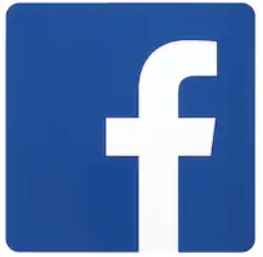The third of a week-long series with White Ribbon stories & links from around the world. Scroll down or click for: Part 1: Australia, New Zealand and the south Pacific or Part Two: The Americas.
And check out The Guardian article by Gary Barker and me, “We Must Enlist Men and Boys in the Fight to End Violence Against Women”
Because White Ribbon is a decentralized network, it’s impossible to track down most WR activities in the world. What is below is only a small sample. I hope you’ll add your own stories and links in the comments section.
Europe: The European Institute for Gender Equality (EIGE) based in Vilnius, Lithuania has launched a Europe-wide White Ribbon effort involving male government ministers and diplomats. They’ve released posters and a series of TV ads and videos. EIGE also ran a two-day conference in Vienna on ending violence against women. If you’re in Europe, you can also sign their on-line pledge… Meanwhile, most years, members of the European Parliament wear white ribbons as part of their commemoration of the International Day for the Eradication of Violence Against Women.
Austria White Ribbon runs a pubic awareness campaign. The campaign is linked to a range of prevention work, including with men who use violence.
Belgium White Ribbon is particularly active in the province of Limburg where, this year, it worked with students and created a flashmob in a movie theatre depicting interpersonal violence. It did a lot of work using social media and enlisted prominent figures to hand out ribbons and information at train stations in various cities.
Denmark: The new campaign has now held two conferences, carries out public awareness efforts, and has set up a Facebook page. Well-known Danish actor Peter Mygind and the Equal Opportunities Minister Manu Sareen have played a central role getting the campaign off the ground.
England: White Ribbon UK now supports a wide range of events and activities across the country, posters, school-based activities, and a program with cities to take action against violence called White Ribbon Towns. White Ribbon has also been taken up by women’s groups, such as in Portsmouth where it is the symbol of the annual ‘Reclaim the Night’ march.
In the world of sports, high profile rugby stars from England, New Zealand and Australia now playing in their world cup at Wembley stadium have backed the White Ribbon Campaign in the Gillette Four Nations Rugby League

Ireland White Ribbon is only a year old but is quickly developing. The Irish Congress of Trade Unions (pictured below with the Services Industrial Professional and Technical Union, Association of Secondary Teachers in Ireland, and Irish Nurses and Midwives Organisation) is backing the campaign which is coordinated by the Men’s Development Network and The Other Half. Stars from the Irish Soccer Team showed their support for White Ribbon.


Finland: A White Ribbon rally was held in Helsinki where the organization Profeministimiehet partnered with other Finnish groups to put on a candle-lighting ceremony called Valoa, ei väkivaltaa (Light, Not Violence) to raise awareness about the issue of violence against women.
Norway: The campaign focuses on activities around father’s day.
Scotland White Ribbon speaks in communities and schools, works with police and political leaders, and is sponsoring a walk on December 3 called Side by Side to raise funds for organizations working to prevent violence against women. They’ve started a postcard campaign challenging the somewhat sinister “lad’s culture”. Twitter
Slovenia has a WR campaign led by the Association for Nonviolent Communication. It has enlisted well-known men and women in its public campaign and videos , provides support services for victims, does public education and works with those who use violence,
Switzerland – Ruban Blanc has published information brochures, created an ambassador network, organized conferences, and held events in German, Italian, English, and French all over the country as part of 16 Days of Activism. Here is their TV message. It has written up a model action plan for its work for the next two years.
Wales: The “Not in my Name” awareness campaign, featuring sports stars, politicians, and many others showing their solidarity and support for White Ribbon. White Ribbon campaigners at the Women’s Institute got the support of many men’s choirs and a prominent Assembly member.
ALL THIS WEEK: White Ribbon in Europe. In the Americas. In Asia. In Africa & the Middle East. In Australia & the Pacific.
Prepared by Manisha Aggarwal-Schifellite & Michael Kaufman
White Ribbon’s messages:
- Although most men don’t use violence in our relationships, all men have a responsibility to helping make it end. Why? Because our silence becomes a form of tacit consent. White Ribbon works to end men’s silence.
- We know that the violence stems from social inequality between women and men. The violence won’t end until women enjoy full equality in the law, within our religions, in our workplaces, and in our families.
- We also know that men’s violence stems from the ways we raise boys to be men and the impossible expectations of manhood. If we want to raise boys to be good men who won’t ever use violence, then a model of caring, non-violent masculinity must start in the home. We must stop raising our sons to fear showing feelings, to fear vulnerability, to feel they must always be in control.
- We recognize the need to go beyond awareness-raising campaigns. We push for better laws, police training, new policies in workplaces, courses for new parents, and school-based programs.
White Ribbon works like this:
- It is a decentralized campaign. We believe that people know best in their own countries and communities how to reach the men and boys around them.
- It’s international. Over the years, it’s spread to 70 or 80 countries.
- In some countries there is an actual WR organization. In most, it’s a campaign run by other organizations or a government office or simply a group of volunteers in a school, workplace, community, or place of worship.
- It works in partnership with women’s organizations and urges men to listen to women’s voices and concerns.
- It focuses on positive messages. This is not about collective guilt. This is about working for healthy and loving relationships, and positive models of parenting.









